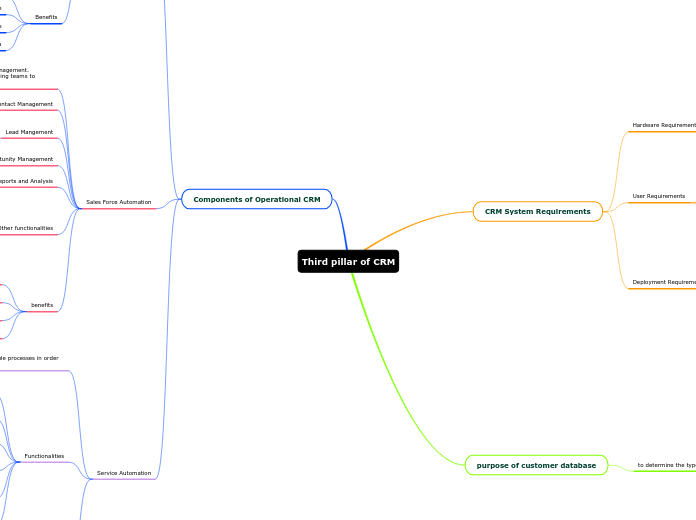por Siti Shymirah hace 4 años
403
Third pillar of CRM

por Siti Shymirah hace 4 años
403

Ver más
Cost Effective
Positive Customer Experience
Efficient Management of Cases
Service Analytics
The system allows managers to measure the effectiveness of support staff and allow a broader view of customer experiences by providing statistics about individual employees
Agent Management
It enables managers to efficiently allocate manpower and see the performance of all employees
Customer Self Service
Ensures customers can find answers, tutorials, and other support content on their own without needing assistance from service representatives
Knowledge Based Articles
SuSupport staff can find information here to help resolve cases
Communication Management
The feature allows businesses to receive and distribute incoming customer communications
Case Management
Collaboration method for planning, coordinating, evaluating, and monitoring interventions to meet human service needs
Effective Team Mangement
Improve Profitability
Enhance Customer Experience
Increase Productivity
order management
proposal generation
product configuration
document management
To track and turn all potential sales opportunities into recurring revenue across the pipeline
It involves collecting leads, tracking all customer interactions such as emails, chat, or website behavior, and qualifying and engaging with them until they purchase
It is the storage and tracking of data about prospects and customers
Measurement based on data
Reach more customers
Personalised customer experience
Enhance the scale and impact of campaigns
Strategic Mangement
Marketing Analytics and Reports
SubtA measurement, management, and analysis of marketing performance to maximize return on investment
Loyalty Management
Customer acquisition, engagement, and retention strategies
Digital Marketing
Web Analytics
Using web data to understand and optimize web usage by measuring, collecting, analyzing, and reporting
Social Media Management
It refers to the process of analyzing social media audiences and designing strategies that are relevant to them
Marketing Campaigns
Event Based Marketing
It identifies and builds communications around key events that occur in the customer/user's lifecycle
Campaign Management
It involves the planning, implementation, tracking, and analysis of a marketing campaign
Tasks should be performed reliably
cater to the needs of various users
should be user-friendly
Future data expansion and user increases should be accommodated
A compatible system should be used in the organization
Staff based in the office and off-site will be able to access the system
Provides easy integration of data from multiple sources